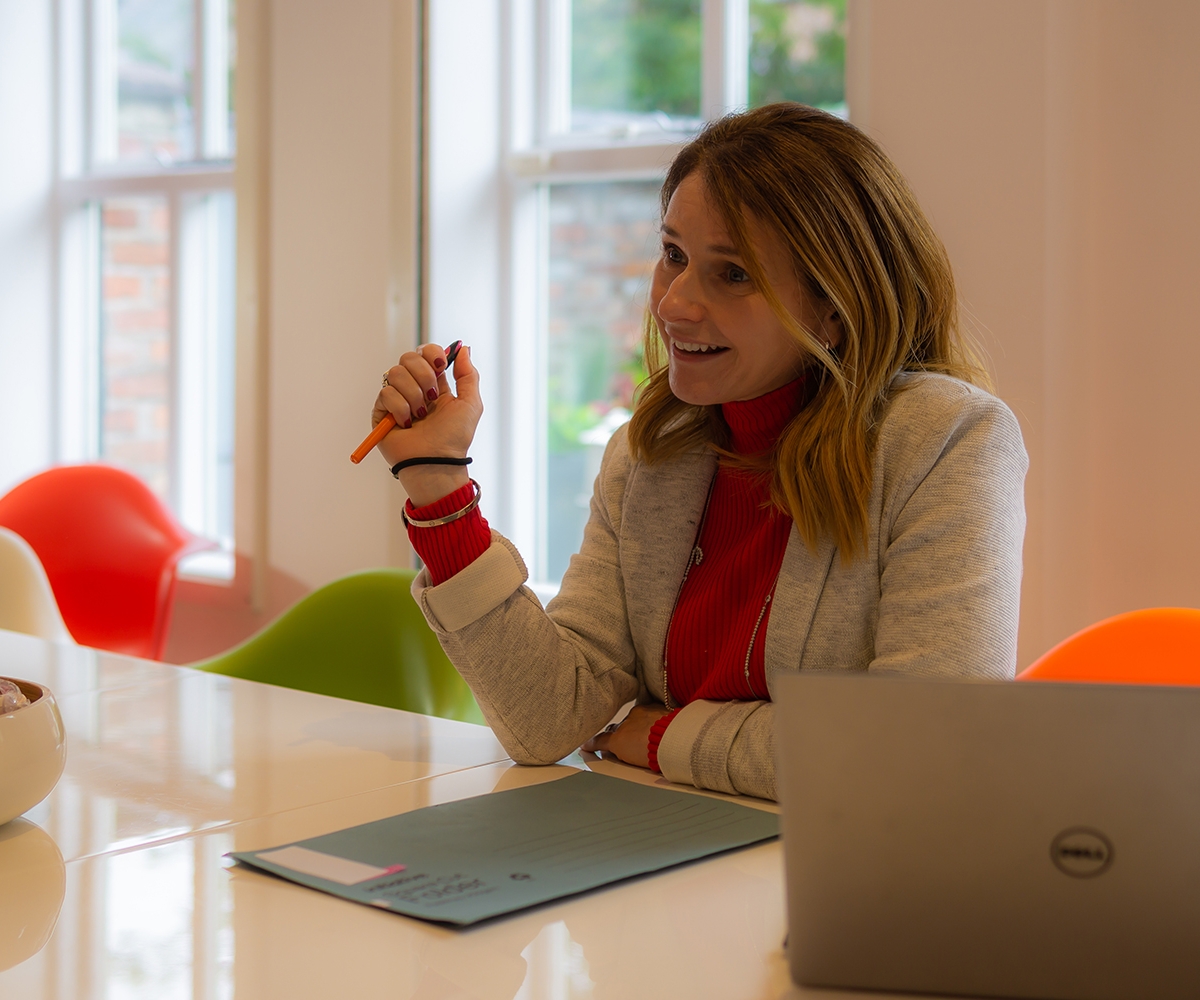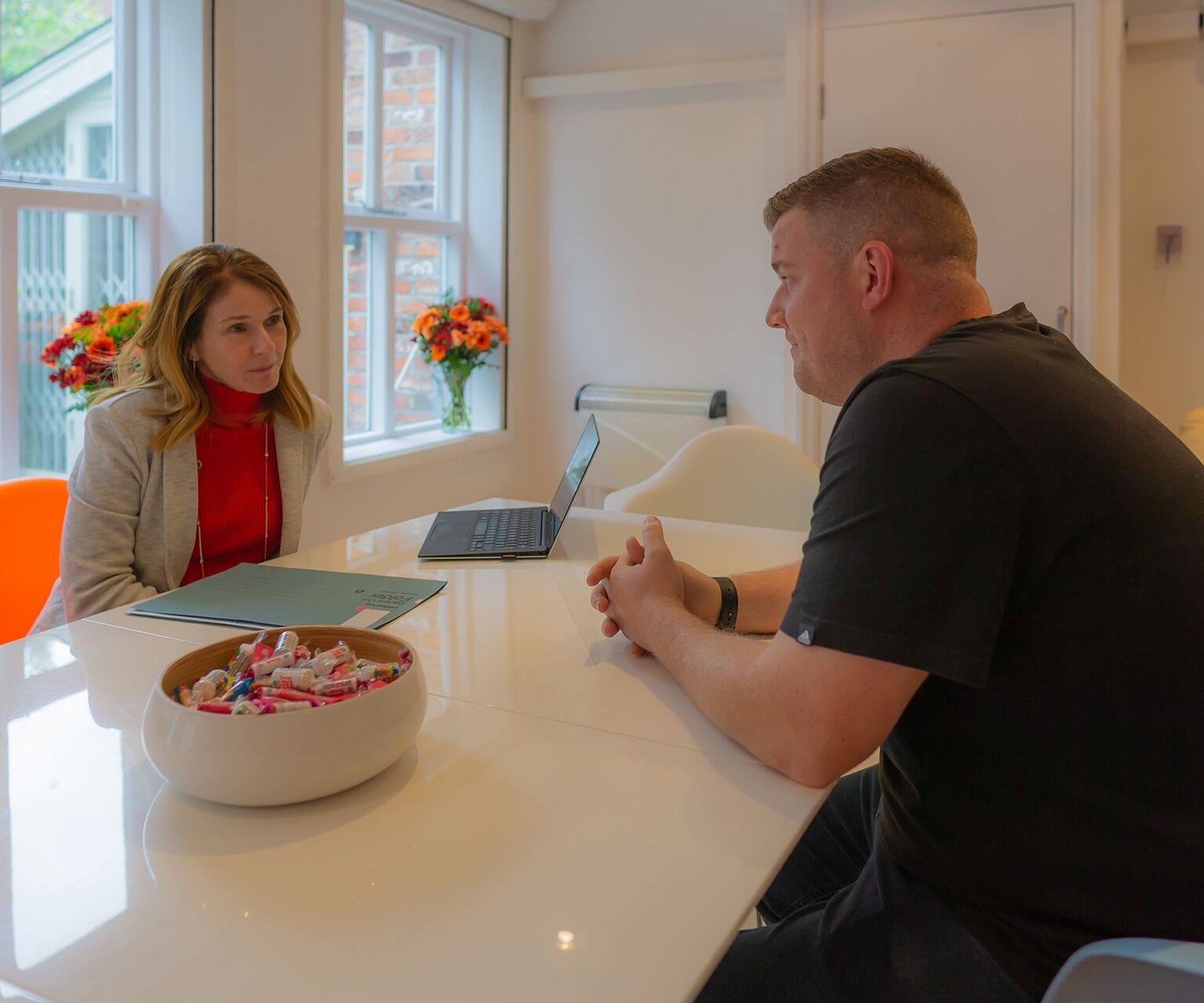Mediators work carefully and diligently to make sure issues are resolved before they can escalate into insurmountable disagreements, all while offering an unbiased and positive voice on proceedings. In fact, family mediation is so successful that it is now mandatory to at least consider using mediators in most family law cases, including civil partnership dissolution and divorce, as well as cases that affect children and the family’s money. Because of this, it is very likely that you will be required to attend a MIAM before a family law court will even accept your application - and your case may be adjourned if the court is not satisfied that you have had this introductory meeting.
Mediation starts with an email or telephone call. Marcia Mediation has offices in central Manchester on Deansgate, and in Altrincham, allowing us to serve clients from across Cheshire and Greater Manchester.
If you’re enquiring about a Mediation Information & Assessment Meeting (MIAM) we can arrange a convenient time for this to take place – either in person or by telephone.
There’s no obligation during our early contact with you, and we’ll make sure you have a timetabled, costed plan for your mediation before we proceed.
Ultimately the main aim of mediation is to make the whole process easier, faster and less stressful.
Sessions can take different forms – you might meet your mediator individually, or together, or in separate rooms with the mediator passing between the two.
This last method is known as ‘shuttle mediation’ and is an effective way to make progress in cases where you prefer not to speak directly or face-to-face with one another.
In most cases the process is as follows:
– First contact (email or telephone).
– No-obligation initial chat.
– Timetabled and costed mediation plan.
– MIAM with both parties in person or by phone.
– Mediation sessions as required.
– Final summary drawn up for solicitors.
– Ongoing support and guidance.
– Faster and less stressful closure.
Anyone who is involved in the dispute may attend a mediation session so long as all parties are in agreement.
In family mediation cases involving children, sessions can be established to talk to the children and find out what they want for the future, including for example where they want to live.
Mediators can even consult grandparents and ensure they are involved in deciding what’s best for their grandchildren – often they can be a valuable additional voice with a slightly more independent perspective.
For most people, mediation is a better way to negotiate a divorce. It can take place in more comfortable surroundings, with more amicable discussions, and without running up the costs involved with court fees and solicitors billing you by the hour.
However, it is not mandatory to proceed with mediation. The only mandatory part is that you must at least consider using mediation at the start of your separation proceedings. Usually you prove you have done this by attending a MIAM, or Mediation Information Assessment Meeting.
This can be held by telephone if it’s not convenient for you to attend in person initially, and it is unlikely that you will be allowed to apply to the divorce courts unless and until you have the paperwork to show that you have attended a MIAM.
You and your partner can attend different MIAMs or have separate telephone calls, so if things are already difficult, you don’t have to be at the same meeting. Importantly if you are a victim of domestic abuse, if your safety is at risk or if you or your partner is bankrupt, you may be exempt from attending a MIAM. If you’re not sure if these or other exemptions apply to you, ask a mediator.
At the end of the divorce mediation process, your agreed terms will be drawn up by your mediator as a Memorandum of Understanding. Both parties will receive a copy and you can take this into court to show to a judge, who will then typically finalise your divorce based on those agreed terms.
Using an experienced accredited mediator makes it much more likely that the Memorandum of Understanding will be approved in court, which should make it faster to finalise your divorce once the mediation process is completed.
Where the negotiations involve money or sizeable assets like property, you may want to consult a solicitor to have the terms of your Memorandum of Understanding drawn up as a legally binding Consent Order. Again, negotiating via mediation first will generally make this faster, cheaper and easier compared with starting out through solicitors from day one.
The total time taken to complete your divorce depends on getting your terms rubber-stamped by the courts; however, from start to finish a typical divorce can be completed in a matter of weeks through mediation, compared with several months or more when using the courts for the whole process.
Mediation sessions generally last between two to three hours but may be shorter if that is preferred or if there are children involved. On average most cases can be resolved within three sessions. This is significantly more time effective than going through court proceedings which take four to six months at the least.
At the end of mediation and agreement will be drawn up which encompasses the conclusion of the sessions. Both parties sign this agreement, and it is the responsibility of both parties to adhere to its terms. Breaching this signed contract means that the other person is able to take court action.
One major benefit of family mediation is that it typically costs a fraction as much as going directly to court.
The first mediation session can cost around £350 plus VAT each, including all summary paperwork.
Subsequent sessions are cheaper as the paperwork is updated for you without extra cost until final agreement is reached. Most couple reach agreement within a maximum of three sessions.
Contact us today on 0161 425 3940 to see how much mediation might cost for you.
In comparison to mediation, an average court case incurs fees of as much as £8,000 to £10,000, nearly five times as much as mediation.
While some cases are more complex, it’s worth remembering that the savings made via mediation far outweigh the costs.
Because of this, if your case takes longer to reach a final agreement that can be ratified by the courts, it is likely that doing so via mediation will save you even more, compared with paying for the equivalent amount of court time.
Mediation isn’t free. However it’s significantly cheaper than paying for court fees and legal representation if you take your divorce to court. Mediation also tends to resolve the dispute more quickly. If you are eligible for legal aid the cost to you could be reduced.
If you are receiving benefits or have a low income, you may be eligible for legal aid from the government to cover your mediation sessions in part or in whole. You will be expected to provide evidence to support this. You can start the process to find out if you are eligible here. You can also discuss this with a mediator before beginning your sessions.
There are lots of reasons why mediation works. Part of it is down to the Marcia Mediation team, which consists of senior mediators with many successful cases behind them.
It’s a method that has been tried and tested, and can be trusted, backed up by professional training and accreditation – and Marcia Mediation founder Marcia Lister is qualified to deliver this training too.
But it also comes down to the parties involved in the case, whether that’s just the two parties of a divorcing couple, or involves children and grandparents as well.
It goes without saying that in most cases, you are best equipped to make decisions that will affect your lifestyle, finances and family structure for the long-term future.
Mediators respect this by listening to the opinions of everybody involved, and proposing solutions that are fair, unbiased and mutually acceptable.
In doing so, they draw on their training, experience and natural empathy to find the best possible outcome for all concerned, with the minimum of stress, cost and delay.
Crucially, this gives you much more control than if you allow a court to make those same decisions on your behalf – so you get a preferable outcome that also costs you less in time and money, making family mediation a truly win-win scenario.
Despite ongoing work by campaign groups, grandparents in England still have very few rights when it comes to their grandchildren during and after divorce proceedings.
This can be very distressing for grandparents who have been closely involved in their grandchildren’s upbringing – and this can range from occasional babysitting to being regular closely involved caregivers.
In cases where it is appropriate to do so, mediators can make sure grandparents are considered when deciding on the future living arrangements of the children.
This may involve speaking directly with the grandparents to find out what they think would be best, or offering an independent opinion as to what might be the best arrangements for access, visits, special occasions like birthdays, and so on.
Mediation is about making sure everybody gets the outcome that is best for them. That might not always include grandparents, but when it does, this is a highly effective way to ensure that their voice is heard in a way that it would not be in court.
Managing the family finances is an important issue – so much so that an MIAM is mandatory in family law cases involving finances, even when there are no plans to separate or divorce.
Our team of mediators can work with you to decide on the division of income, savings and assets, while helping to make you aware of what this could mean for your future lifestyle once you are living alone, paying all of your own bills individually, and so on.
Importantly, we have experience of what is acceptable in court, such as preventing any individual party from suffering significant hardship following a separation.
This means we can not only work towards an outcome that is fair for all concerned, but also one that can be ratified in court without any undue delays or additional costs
It’s all too easy to exclude children from the conversation, but a mediator can help you to make sure you agree on arrangements that are best for them and for you.
That can include talking directly with the children – you can trust mediators to do this sensitively, and your children might find it easier to open up if you are not in the room at the time.
All of this makes the role of a mediator incredibly important in cases involving young children, and this is not a responsibility that is taken lightly.
Marcia Mediation’s team consists of experienced senior mediators who have worked on many, many cases where young children were involved.
This gives us a unique ability to put across your child’s voice in a way that can be taken into account alongside the opinions of the adults, and to make sure that they are fairly treated in the final agreement that is reached.
Find out more about mediation cases involving children here
First of all, both parties decide if they want to attend. If both have already decided that family mediation is the best option, they contact their chosen mediator to find out more about the process and make an initial appointment.
In cases where only one party has researched mediation upfront, it can be possible to hold a Mediation Information Assessment Meeting or MIAM with that party alone, which can be done over the phone if necessary.
The mediator will discuss the family mediation process in detail and can then contact the other party to find out if they want to try mediation too. Even if they do not, the mediator can still help by providing the required paperwork for the originating party to make an application to the court.
In any case, you cannot legally make a court application until you have attended a MIAM in person or by phone, and an accredited mediator will always assess your case honestly in order to decide whether, in their opinion, mediation is a suitable way to proceed.
Mediation puts at your disposal an individual who has your best interests at heart, aiming for a fast, low-cost and low-stress resolution to your case through mutual agreement and with all parties retaining as much dignity as possible along the way.
The alternative – allowing solicitors to take a combative approach to negotiations that can end with a judge imposing life-changing decisions on you and your children – is in most cases clearly not preferable.
By negotiating through mediation, you can work together, even in relationships that have completely broken down, to make more positive future arrangements.
At any time if either party is unhappy with the progress made via mediation, they can choose to leave the process and go via the courts instead.
However, it’s worth remembering that the opposite is not also true – once a judgment is imposed upon you by a court, it is legally binding and you cannot then choose to go to mediation to find a more acceptable alternative.
Because of this, it is almost always better to go to mediation first and attempt an amicable resolution, while keeping the courts as a last resort if negotiations break down or you encounter an impasse that even an experienced accredited family mediator cannot resolve.
You’ll need to get your divorce finalised by a judge, so it’s not possible to complete divorce proceedings without involving the divorce court; however, the mediation process can significantly reduce the amount of time spent in court and remove the acrimonious negotiations and solicitors’ fees.
Mediation takes place at a mutually agreeable time and date, with all involved parties working together to achieve the best possible outcome, under the guidance of an accredited experienced family mediator.
Your mediator can include the views of your children or extended family who act as caregivers, such as grandparents, and again this takes place in friendly and comfortable surroundings, rather than requiring them to attend court.
At the end of the process you will receive documents that you can present to a judge who can then finalise your divorce – in some cases this can be done without you attending a court hearing in person, so while the divorce courts must give you that final rubber stamp, you might never need to attend court in person in order to get it.
Divorces and dissolutions of civil partnerships are finalised by a judge, but you can avoid time spent in court by negotiating the terms of your separation through a mediator and then taking your Memorandum of Understanding into the court for the final approval.
You are legally required to consider mediation by attending an initial MIAM or Mediation Information Assessment Meeting, and this should help you to understand more about how a mediator can reduce the amount of time you need to spend in court or negotiating through solicitors.
In as little as three mediation sessions in amicable separations, your mediator can help both parties to agree on terms that are then written down as a Memorandum of Understanding. This is presented to a judge who can approve the final separation based on those terms.
So while you cannot avoid court completely when divorcing or dissolving a civil partnership, mediation can massively cut down the amount of time you have to spend in front of the judge, and the final approval can sometimes be granted without you attending in person.
Even if you would like to process your divorce through court, you are legally required to attend a MIAM, which is an initial mediation session. This is to find out if your divorce can be resolved through mediation which is more cost and time effective for all parties.
Mediation is not compulsory in your divorce, however the court will require both of you to attend a MIAM before entering into court proceedings.
We know it might be difficult to understand how mediation and litigation are different, especially when you are going through a stressful family situation. This infographic explains what you need to know about mediation, who it is for, what to expect, and how it different from litigation.

A pioneer for mediation since commencing legal practice as a family solicitor some seventeen years ago, Marcia has worked exclusively as an independent mediator since 2004, focussing initially on family mediation, and latterly on work place mediation.
Marcia’s accreditations include Family Mediation and she is a qualified child consultant practitioner. Her associations include the Professional Mediators Association and Resolution.
If you have any questions, call us on 0330 236 7450 or fill out this form



